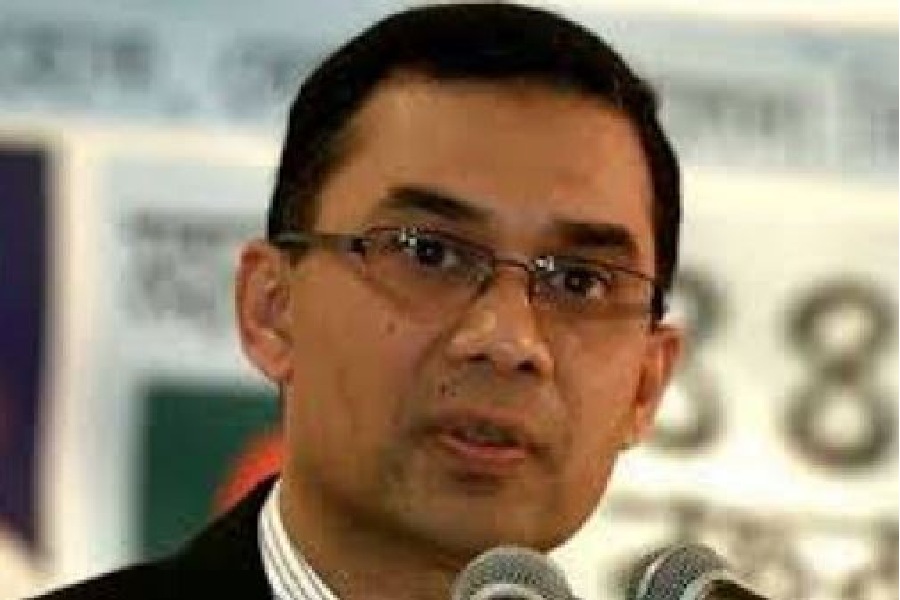Bangladesh has sought an extradition treaty with the British government, weeks after a court in the South Asian nation sentenced fugitive BNP leader Tarique Rahman in a money laundering case, the neighbouring country's Law, Justice and Parliamentary Affairs Minister Anisul Huq said.
In an exclusive interview with PTI, Huq said Bangladesh will be looking at repatriation of money stashed away abroad which had been illegally taken out of the country.
"We have held talks with the British High Commissioner to Dhaka and sought an extradition treaty. The British government is expected to revert back to our request," said Huq, who was in Kolkata for a G20 ministerial meeting on anti-corruption.
An extradition treaty allows countries to send back fugitives from justice to each other's territory.
A court in Bangladesh had earlier this month sentenced Rahman to nine years in prison and his wife to three years, in absentia, in a money laundering case.
Rahman, the son of slain former Bangladesh president General Ziaur Rahman and ex-prime minister Khaleda Zia, was allowed to leave for London after signing a conduct bond on being arrested for graft by an Army-backed caretaker government in 2008.
"We would also like the money laundered by him abroad to be extradited," said Huq, a UK-trained lawyer who chose to become a politician.
"The Awami League government did not arrest Rahman. He was arrested by a caretaker government which was backed by the Army. An anti-corruption commission probed the cases against him and submitted the chargesheet on the basis of which the judiciary has passed sentences," the minister pointed out in answer to opposition charges of bias in the prosecution of the BNP leader.
Besides facing judicial proceedings in a number of graft and money laundering cases, the co-chairman of the opposition BNP is also accused of being the mastermind of a grenade attack on Sheikh Hasina's rally in 2004 which killed more than a score of people.
The latest sentencing has come amid BNP demands and protest rallies calling on Prime Minister Sheikh Hasina to step down and hold elections under a caretaker government -- a demand which has been rejected by the ruling Awami League government.
The Hasina government is likely to go in for an election before January-end next year as its term in office ends then.
"Our constitution provides that elections have to be held within 90 days of the end of the term of a government and we expect a winter election to be conducted by the Election Commission," said Huq.
Though the opposition led by BNP has been in disarray ever since Khaleda Zia, Rahman's mother and former prime minister of Bangladesh was jailed on corruption charges in 2018, it is expected to mount a credible challenge to Awami League in the forthcoming election.
Except for the headline, this story has not been edited by The Telegraph Online staff and has been published from a syndicated feed.












